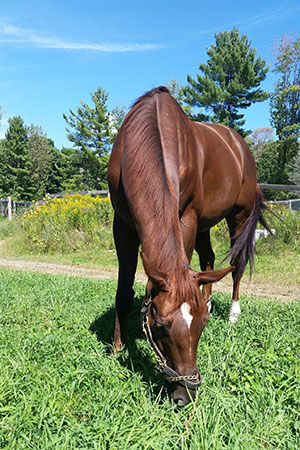 It's common knowledge that the microbiome is a hot area of biomedical research, with pharma and biotech placing big bets on microbiome therapeutics. But did you know that microbiome research and probiotics are also of interest to the animal health and agriculture markets?
It's common knowledge that the microbiome is a hot area of biomedical research, with pharma and biotech placing big bets on microbiome therapeutics. But did you know that microbiome research and probiotics are also of interest to the animal health and agriculture markets? Farmers routinely treat livestock with low-dose antibiotics to promote growth, but that practice has been widely criticized as leading to the development of antimicrobial resistance, which the US Department of Agriculture has called "one of the most serious health threats to both animals and humans." With pressure to reduce routine antibiotic administration in livestock production mounting, from both regulators and consumers, farmers need an alternative approach to efficient production. That's where microbiome research comes in.
According to an industry report, "The Global Probiotics in Animal Feed Market is poised to grow at a CAGR of around 7.9% over the next decade, to reach approximately $6.37 billion by 2025." Demand extends beyond the livestock market to companion animals and the equine industry. A recent review article identified nearly 1,250 papers on the use of direct-fed microbials (DFM) for livestock across just seven well ranked journals1.
There are already a number of probiotic products which are accepted as feed additives for livestock. According to Buntyn et al., "Unlike antibiotics (which have either a direct bactericidal or bacteriostatic effect on bacteria), DFMs must function through indirect mechanisms, such as alterations to the intestinal microbiome, enhancement of intestinal efficiency, and modulation of the host immune response1". However, as in the human supplement market, probiotics for animals may be marketed using claims which have not been adequately proven.
Proving Efficacy of Probiotic Treatments
Particularly in the equine market, there are a vast array of unregulated nutritional supplements, including probiotics. It's not always clear whether supplements actually meet label claims of amount or type of probiotic organism present, whether the shelf stability of the probiotic is assured or whether any efficacy claims are backed by rigorous science.Properly controlled development of new probiotics for animal health should include a series of in vitro selection steps followed by in vivo efficacy assessment. Although much of this research is done directly in the livestock animal of interest, some animal health research is done using surrogate models, such as mice. Compared to livestock, mice can be less expensive and easier to use in research, while experimental conditions such as starting microbiota can be controlled more easily.
Silva et al. demonstrated this approach with respect to probiotic development for horses. The group isolated lactic acid bacteria from foal feces and chose a particular isolate based on performance across a number of in vitro screening steps such as resistance to high pH and tolerance to bile salts. The chosen isolate also demonstrated in vitro antagonistic activity towards bacterial pathogens, including Salmonella enterica.
However, when BALB/c mice were pretreated with the lactic acid bacterial isolate and then challenged with Salmonella enterica, those pretreated mice were actually more susceptible to the pathogen compared to untreated controls. Mice fed the probiotic had lower survival compared to controls which did not receive the probiotic.
The authors saw this result as a cautionary tale; despite in vitro results that pointed towards a promising new probiotic, the in vivo challenge demonstrated that the organism actually produced worse health outcomes for the host. Thus proper in vivo experiments are required to establish the safety and efficacy of new animal health probiotics2.
With so many well-understood mouse disease models, and the commercial availability of germ-free mice which can be associated with a defined microbiota, we expect murine studies to be critical tools supporting the development of livestock and companion animal probiotics.















.jpg)

.jpg)
.jpg)
.jpg)
.jpg)





.jpg)


.jpg)
.jpg)

.jpg)


.jpg)





.jpg)

.jpg)





